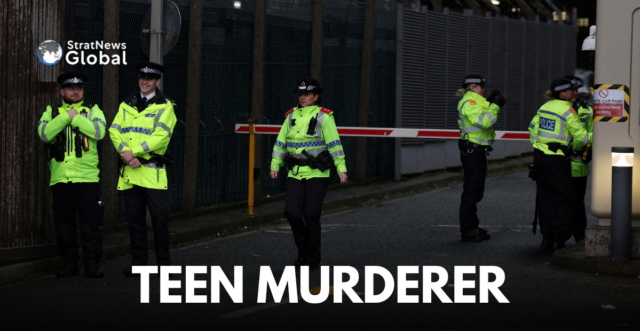A UK teen who killed three young girls in Southport at a Taylor Swift-themed dance event was jailed for at least 52 years on Thursday after a murder and attack so violent prosecutors said it appeared he had tried to decapitate one of the victims.
Axel Rudakubana, 18, admitted killing the girls and stabbing 10 others last July in the northern English town of Southport, a crime that shocked Britain and was followed by days of nationwide rioting.
Sadistic Nature Of Crime
Prosecutor Deanna Heer told Liverpool Crown Court Rudakubana was obsessed with violence and genocide, and that two of his victims had suffered such terrible injuries they were “difficult to explain as anything other than sadistic in nature”.
Judge Julian Goose said Rudakubana should serve a minimum of 52 years. He could not impose a full life sentence as Rudakubana was 17 when the attack took place but he was unlikely ever to be released.
“What he did on the 29th of July last year has caused such shock and revulsion to the whole nation that it must be viewed as being at the very extreme level of crime,” Goose said.
Twice during Thursday’s hearing, Rudakubana was removed from the dock after shouting he was unwell. He refused to return to court to hear his sentence.
Harrowing Footage
The court was shown harrowing video footage of screaming girls fleeing the building. One bloodied girl collapsed outside, provoking gasps and sobs from the court’s public gallery.
“He targeted us because we were women and girls, vulnerable and easy prey,” Leanne Lucas, 36, the yoga teacher who organised the event and was stabbed five times, told the court.
Bebe King, six, Elsie Dot Stancombe, seven, and Alice Dasilva Aguiar, nine, were murdered by the UK teen in Southport. They were among 26 children attending the summer vacation event.
Two suffered dozens of sharp force injuries which Rudakubana inflicted with a knife he bought online, Heer said.
After his arrest, Rudakubana told police: “I’m glad those kids are dead, it makes me happy.”
Images and documents found on a computer at his home showed a long obsession with violence, killing, and genocide, Heer said.
Rudakubana also admitted possessing an al Qaeda training manual and producing ricin, a deadly poison that the judge said it was likely the teenager would have used.
Murders Not Considered Terrorism
Heer said the murders were not considered terrorism as Rudakubana was not inspired by any particular political or religious ideology. Material mocking religions including Islam, Judaism, and Christianity had been found on his devices.
“It is not possible to identify any particular terrorist cause,” Heer said. “Rather, the evidence suggests that the defendant’s purpose was the commission of mass murder as an end in itself.”
Rudakubana had been diagnosed with autism but his lawyer, Stan Reiz, said he did not have a mental disorder that explained his actions and there was little he could offer in mitigation for “such wickedness”.
Heer said Rudakubana had in 2019 contacted a helpline for children and asked what he should do if he wanted to kill somebody. Soon afterward, he was expelled from school after admitting to bringing in a knife 10 times, and was arrested with a knife in his backpack after returning and attacking a pupil with a hockey stick, Heer said.
Rudakubana had been referred to a counter-radicalisation scheme, Prevent, after researching school shootings, uploading images of late Libyan leader Muammar Gaddafi to Instagram, and researching an attack in London, but no action was taken.
The government has ordered a public inquiry, saying there were grave questions to answer.
(with inputs from Reuters)





